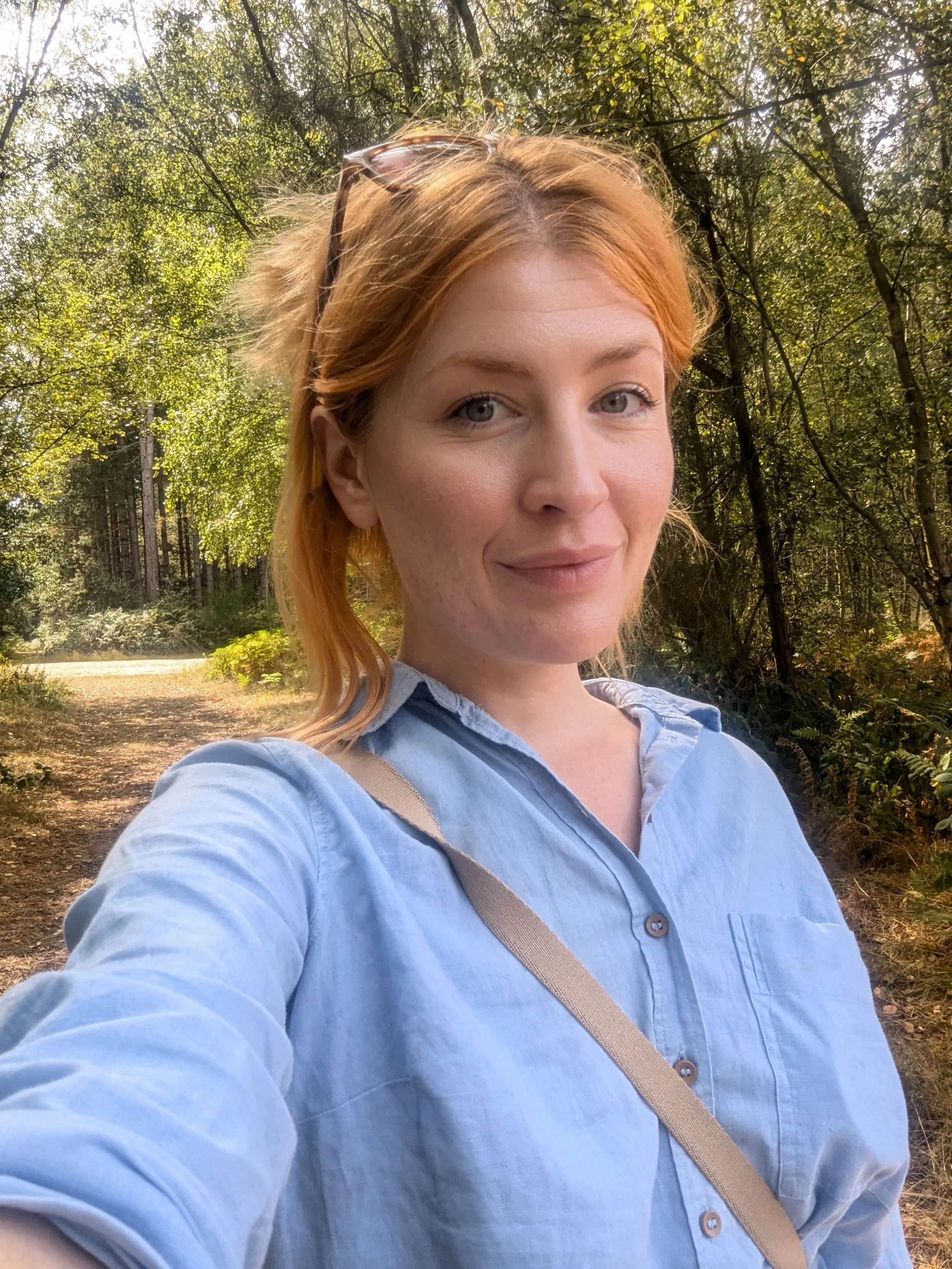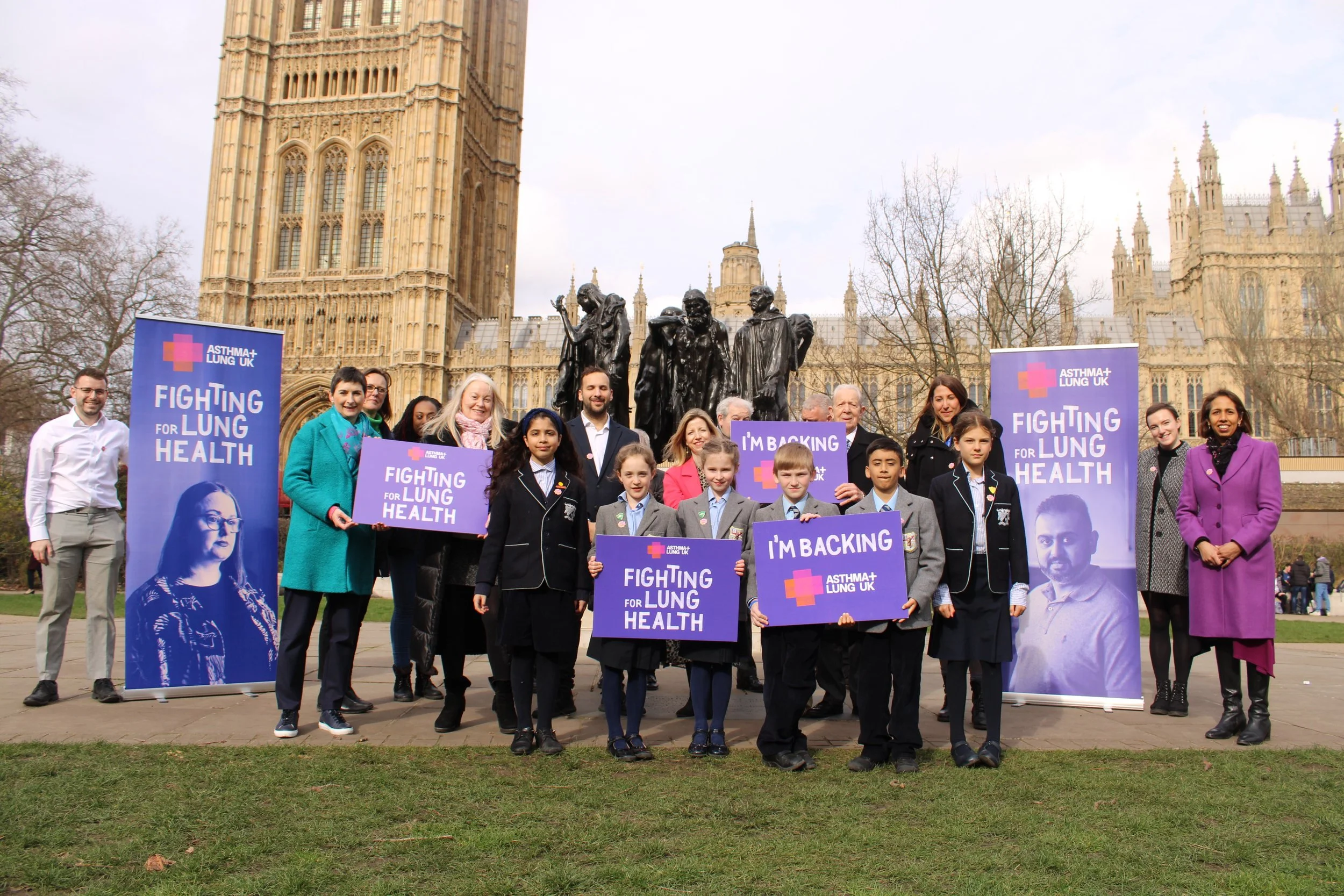Celebrating International Day of Women and Girls in Science
International Day of Women and Girls in Science is an opportunity to promote full and equal access to and participation in science for women and girls. Dr Sam Walker, Director of Research and Innovation at Asthma + Lung UK introduces some of the amazing women in respiratory research we’re funding.
Science, research, innovation, and the progress these disciplines drive require all hands on deck to make a positive impact on the lives of people living with lung conditions. That’s why days like today - International Day of Women and Girls in Science – are so important to highlight the incredible dedication and achievements made by women working in science. As well as promote the need for equal access to education, training and career development.
Asthma + Lung UK are committed to funding women in furthering our understanding of lung research, especially at the start of their careers. Here we are sharing some inspirational words from some of our female award winners to inspire the next generation of women starting out in STEM.
Siyuan Wang
Siyuan Wang
Meet Siyuan, a final year PhD student at the University of Southampton. Her project is mainly investigating development of idiopathic pulmonary fibrosis (IPF), a condition with little understanding around development and progression
Why is it important to involve more women and girls in science?
We are just as capable than anyone else. Science works best when everyone is involved. It’s important to see more women and girls involved as our voices become stronger.
What are your hopes for the future of women in science?
I hope to see more women having longer and more fulfilling careers. Currently, the gender ratio among students is almost equal, but upon entering the workforce and striving for higher positions, women often have to put in extra effort.
Despite growing awareness in recent years, many women still have to choose between their job and their families. I see them sacrificing better job opportunities and I'm not saying this choice is wrong; rather, I hope the future work environment doesn’t force women to choose one or the other.
Claire Houston
Claire Houston
Claire was awarded funding from Asthma + Lung UK to travel to the European Respiratory Society International Congress 2023 to present. Her research explores whether proteins can be used to treat conditions like COPD and cystic fibrosis.
What inspired you to pursue a career in science?
From my early school days, science has always captivated me. When I was studying for my degree in Biochemistry, my fascination deepened as I learnt about the intricate workings of the human body and what goes wrong during disease.
This curiosity and the desire to push the boundaries of knowledge in unravelling the mechanisms that lead to people’s health worsening led me to pursue a career in medical research.
What has your experience of being a woman in science been like?
My personal journey has been extremely positive, and I have been presented with numerous opportunities. Currently at 37 weeks pregnant, as I anticipate motherhood for the first time, I have a natural sense of apprehension about balancing parenthood with my role as an early-career scientific researcher. The transition from early career to independent researcher is both demanding and competitive. During the European Respiratory Society International congress in Milan last September, I had the privilege of meeting a group of female academics from around the world, many of whom were mothers. Their stories and experiences were incredibly inspiring and provided me with lots of encouragement.
What advice would you give to the future generations of female scientists?
I would wholeheartedly encourage them to purse their passions. Be proactive, seek out a mentor and role model who can inspire and guide you, and make connections with women already established in your field of science. These experienced scientists can offer you invaluable insights and support, helping to shape your career in science and help you through challenges.
Puja Mehta
Puja is a rheumatology clinician in her final year of her PhD at UCL Respiratory. Her project is investigating why some people develop lung scarring after Covid-19 and why others make a full recovery.
Puja Mehta
Why is it important to involve more women and girls in science?
It is imperative that we have diversity of thought in science to drive innovation, creativity and progress. Diverse research teams drive better science! This applies to all metrics of diversity – gender, skin colour, neurodiversity, socioeconomic class etc. Representation does matter, and I feel very committed to advocate for all patients, including those from marginalised groups, to improve equity of access to clinical care and research.
What are your hopes for the future of women in science?
I am very passionate about improving research culture and have organised UCL's Division of Medicine research culture seminar series and published and presented in this space. Male allyship to improve gender equity is really important. I hope that we continue to be able to talk openly, with mutuality to improve inclusivity in research, to ensure everyone feels like they are valued and belong, so we can do great work together as a team.
What has your experience of being a woman in science been like?
I really enjoy clinical academia. I don't think we can look at gender without the lens of intersectionality, which relates to how personal characteristics (e.g. gender, race, class etc) 'intersect' and combine with one another. Every woman will have a different experience. I have more identities than just 'woman', I am a woman of colour and a carer, working less-than-full-time. This confers challenges but also strengths and a different perspective, that ultimately benefits the work.
We empower people with lung conditions to make changes that can be transformative.
Please donate now to help make sure people with lung conditions can live well this year.










Beki is a PhD student from the West Midlands. She has several health conditions including severe asthma and Ehlers-Danlos syndrome (EDS). EDS is a rare inherited condition that affects connective tissue. Last May, Beki set herself a fundraising challenge to complete 180,000 steps to raise money to mark World Asthma Day and EDS Awareness Month.